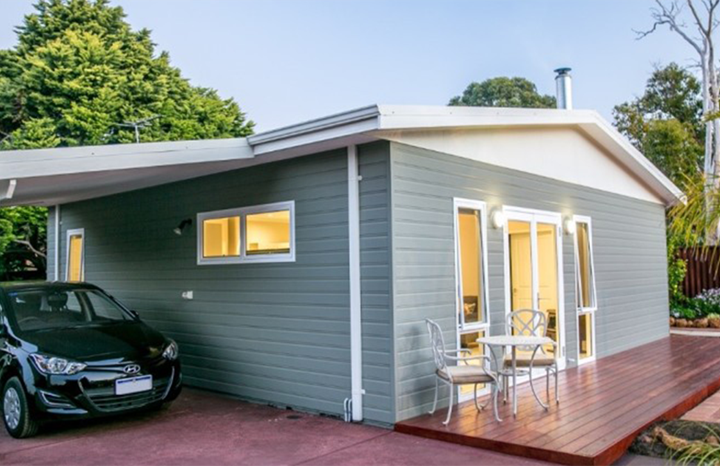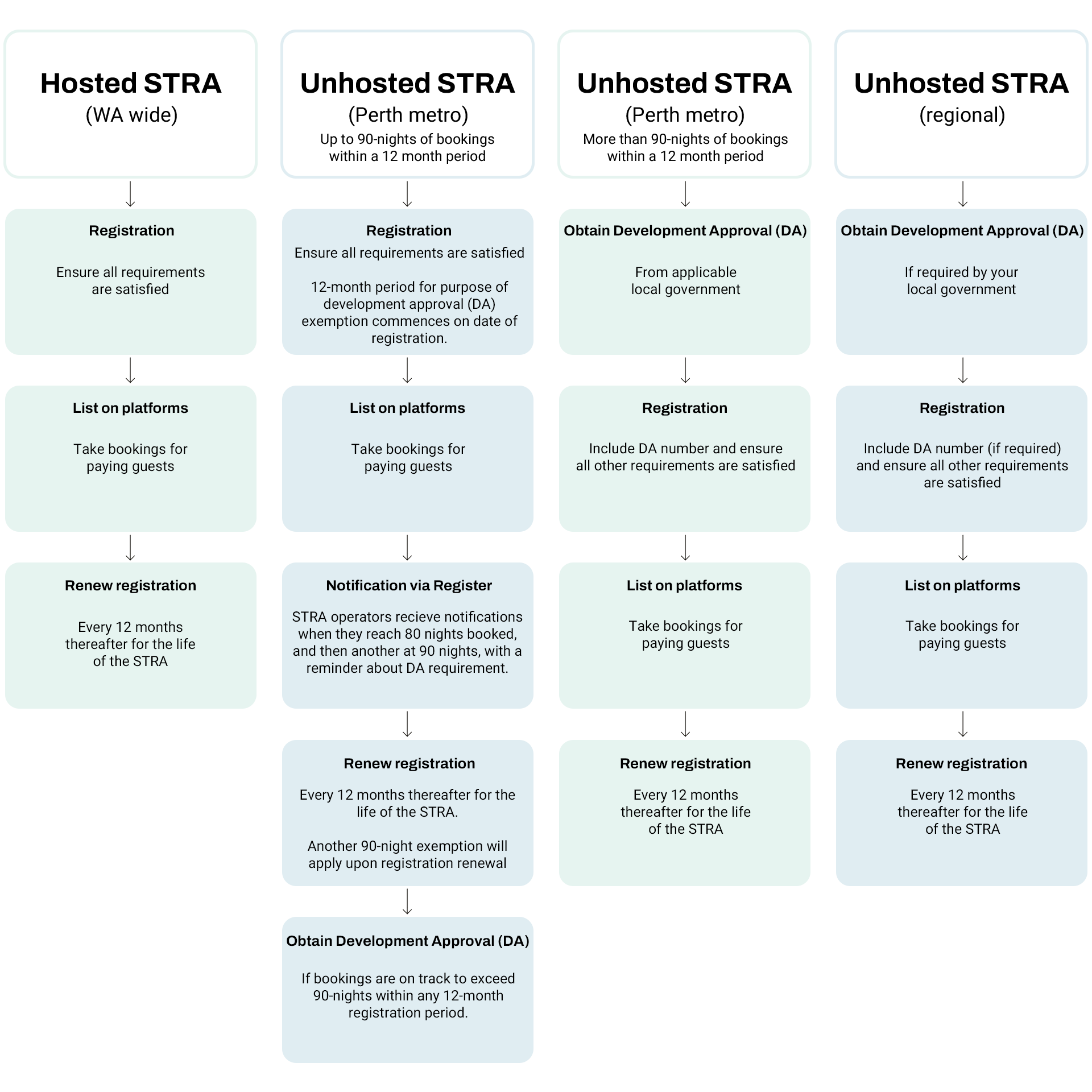Perth metropolitan area
If an unhosted STRA operator within the Perth metropolitan area intends to rent out a property on a permanent basis, development approval from the local government should be obtained prior to operation. STRA Operators within Perth should contact their local government to confirm specific development approval requirements prior to registration.
An exemption from the requirement to obtain development approval applies within the Perth metropolitan area where unhosted STRA is leased for 90 nights or less (non-consecutive) within a 12-month period, as per the date of registration.
The 90-night exemption caters for property owners who wish to let out their primary residence for unhosted STRA on a temporary basis (such as when on holidays, for example) without needing development (planning) approval, however registration is still required. The exemption is monitored through booking events collected as part of the STRA Register.
Local governments in the Perth metropolitan area for the purpose of this 90-night exemption are:
- City of Armadale
- City of Bayswater
- City of Belmont
- Town of Bassendean
- Town of Cambridge
- City of Canning
- Town of Claremont
- City of Cockburn
- Town of Cottesloe
- Town of East Fremantle
- City of Fremantle
- City of Gosnells
- City of Joondalup
- City of Kalamunda
- City of Kwinana
- City of Melville
- Town of Mosman Park
- Shire of Mundaring
- City of Nedlands
- Shire of Peppermint Grove
- City of Perth
- City of Rockingham
- Shire of Serpentine-Jarrahdale
- City of South Perth
- City of Stirling
- City of Subiaco
- City of Swan
- City of Wanneroo
- Town of Victoria Park
- City of Vincent
Regional areas
Local governments outside of the above listed local government areas, including those in the Peel region, have the flexibility to determine planning approval requirements for unhosted STRA as applicable to the housing and tourism situation within their municipality. This is to ensure that rules for STRA are tailored to suit the tourism and housing conditions of specific locations. STRA operators in regional areas should contact their local government to confirm approval requirements prior to registration.





